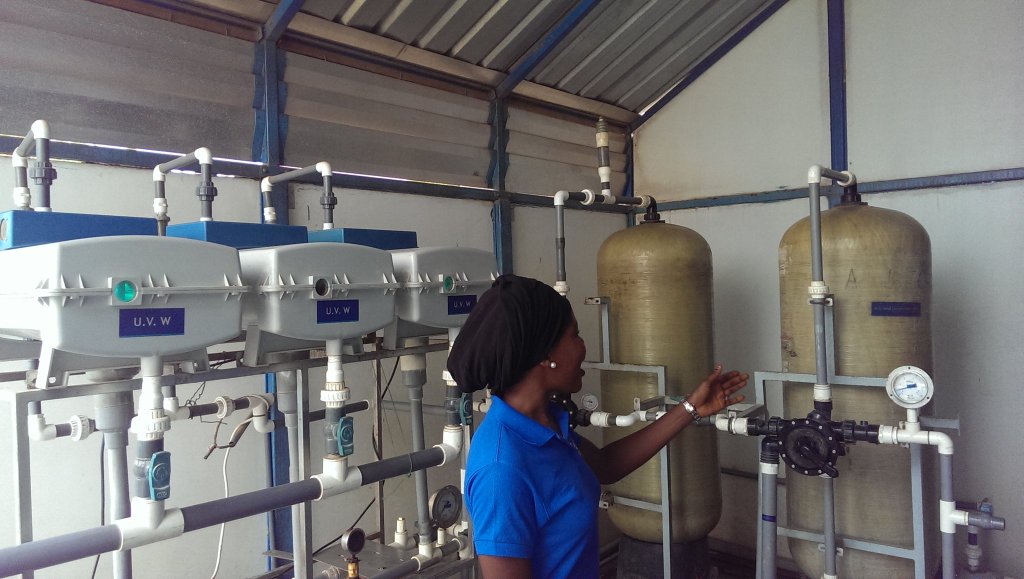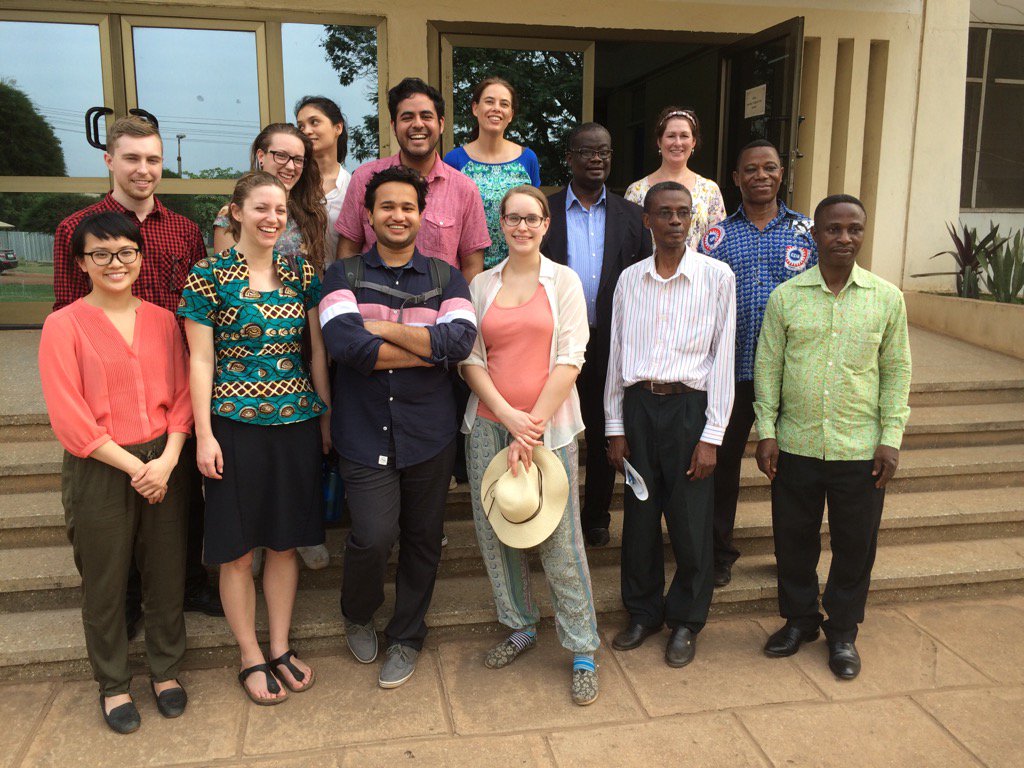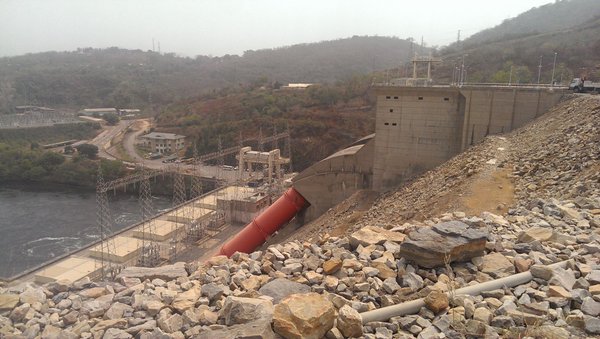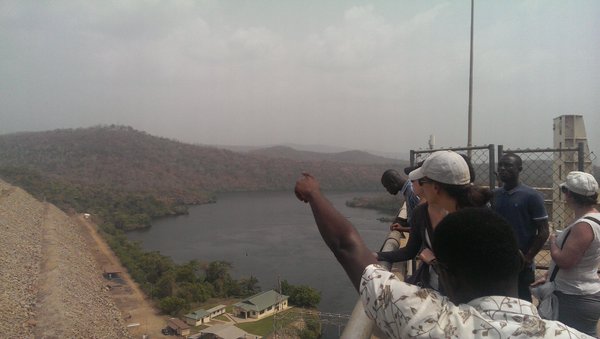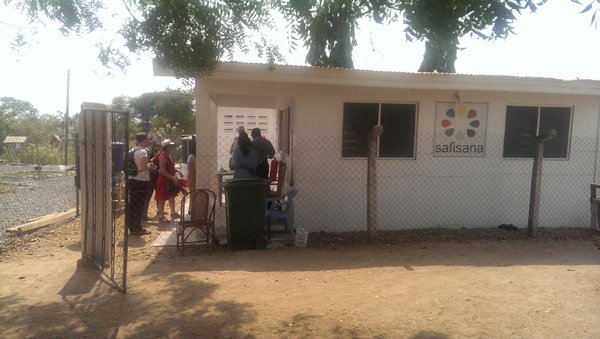Students trade vacation for sanitation during Reading Week field trip
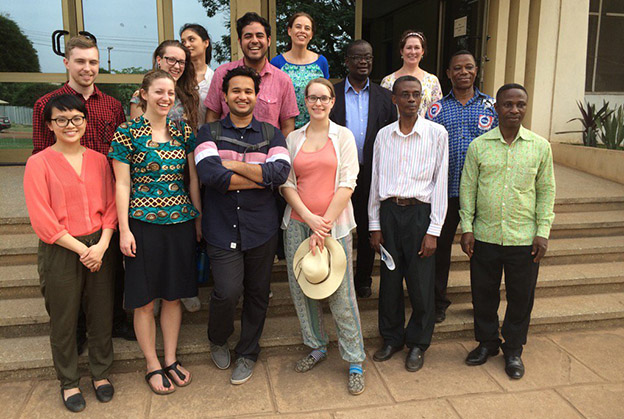
UNU-INWEH field course students visiting Ghana's Water Research Institute
For at least one group of students, Reading Week wasn’t spent on a beach – it was spent at a water treatment plant.
Graduate students in the Water Without Borders program, a joint initiative between the United Nations University, Institute for Water, Environment and Health (UNU-INWEH) and McMaster, spent the week in Ghana gaining professional policy training and a perspective on global water issues.
The students met with staff from United Nations University, Institute for Natural Resources in Africa, took part in a walking tour of Nima in Accra, the capital city of Ghana, and visited the field office of Safe Water Network, an NGO that provides water access to communities in Ghana.
The group also visited the Canadian High Commission to see Canada’s water sanitation and health program known as WASH. UNICEF and the Water Research Institute of Ghana were the final stops on day two.
Students learning about water access using a market based approach at Safe Water Network in Ghana.
Water Without Borders class at Ghana’s Water Research Institute.
On Wednesday, Feb 17 students saw the Ghana Water Company in Kpong and the Lake Volta, the largest man-made lake in the world, located behind Akosombo Dam.

WWB students on route to see the Kpong water treatment plant and Volta Dam
Thursday was spent at the Kofi Annan International Peacekeeping Training Centre, and the Zoomlion Waste Water and Sewage Plant.
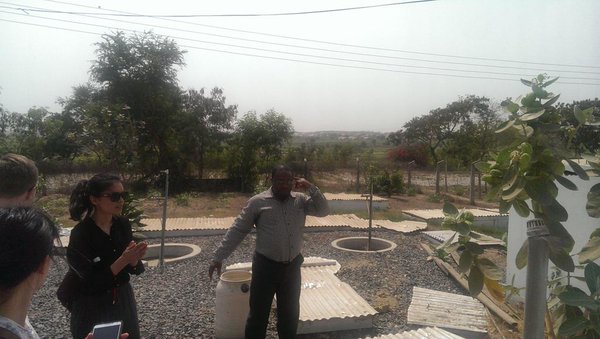 Students saw how compost/wastewater is used to generate electricity at Safi Sana.
Students saw how compost/wastewater is used to generate electricity at Safi Sana.
The final stop of the week was Plan International, an NGO that aims to achieve lasting improvements in the quality of life or deprived children in developing countries.
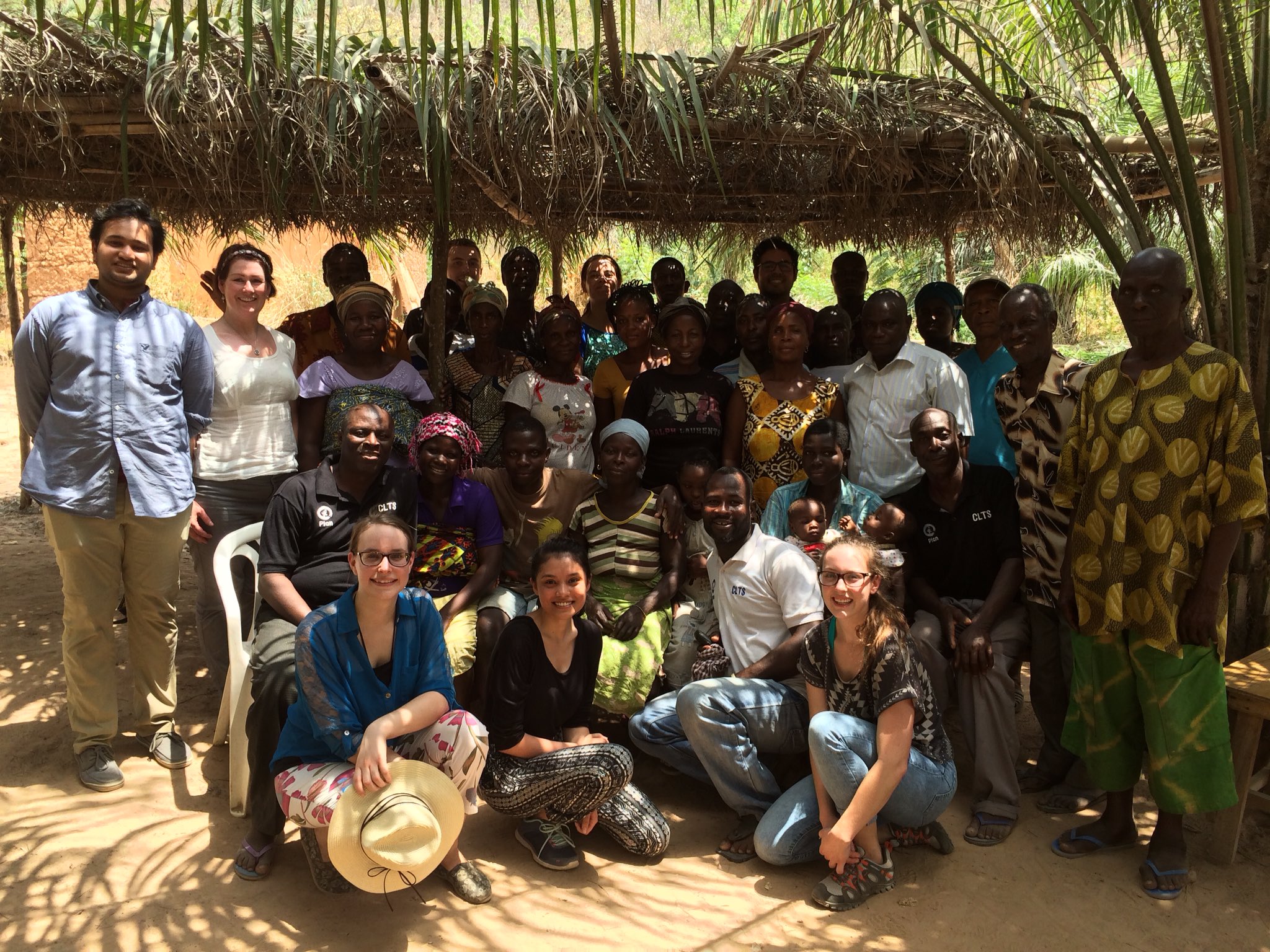
WWB class saw health benefits from community-led total sanitation project in Woadzetornu
